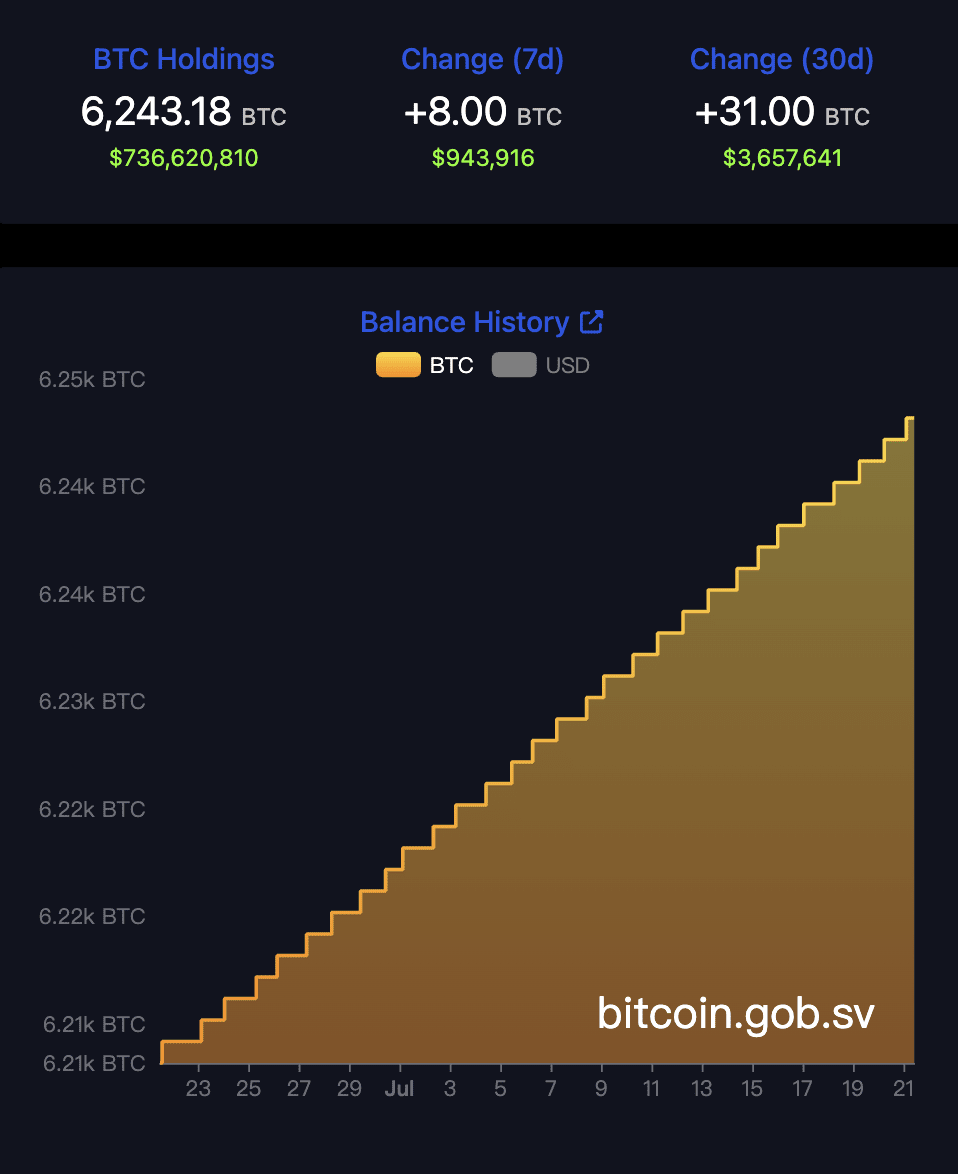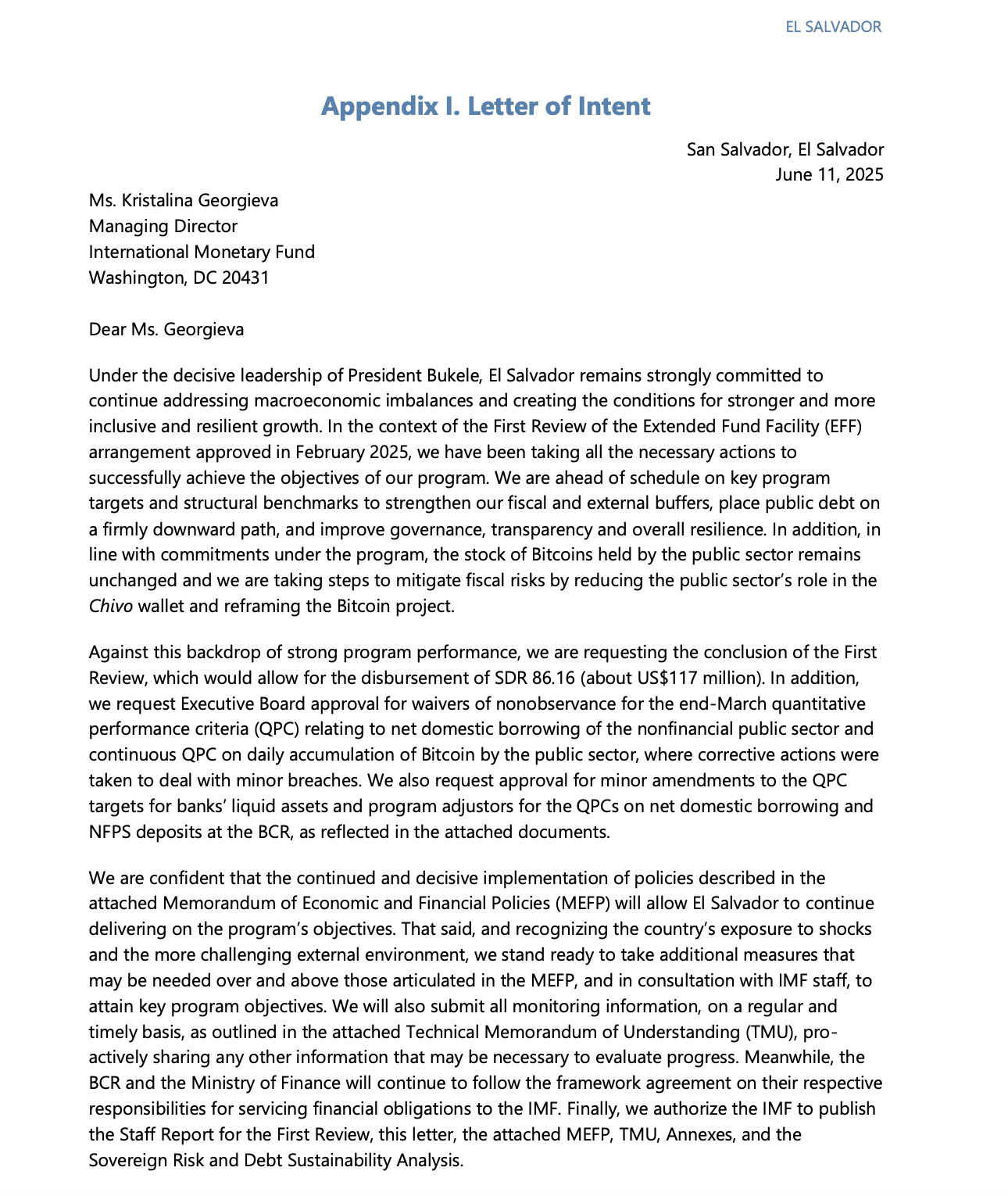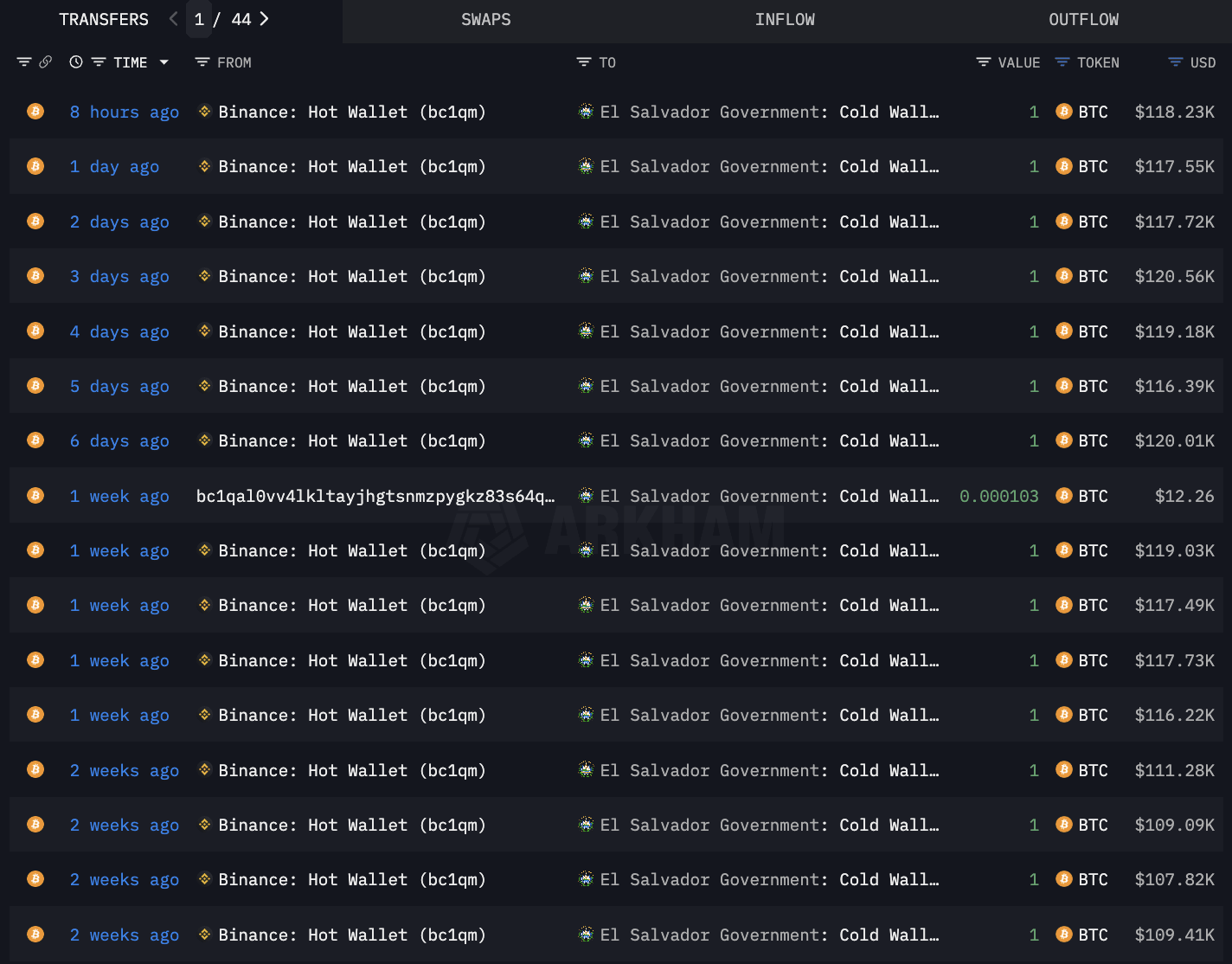The IMF report debunks the illusion that El Salvador is actually buying new bitcoins.
The latest report released by the International Monetary Fund (IMF) on July 15 directly contradicts the El Salvador government’s claims of 'buying one bitcoin daily' throughout the year. According to the IMF's Article IV consultation and first program review report, El Salvador has not actually purchased any new bitcoins since receiving approval for a $1.4 billion Extended Fund Facility (EFF) in December 2024.
Further Reading
Compromise with the IMF for $3.5 billion! El Salvador's official wallet may be retired, but it will not give up buying bitcoin.
The IMF clearly stated in the report: 'Since the approval of the plan, the total bitcoin holdings of the public sector have remained unchanged.'
This sharply contrasts with the purchasing statements continuously released by El Salvador President Nayib Bukele and the National Bitcoin Office on social media throughout the year. On March 4 of this year, Bukele also posted on the X platform stating that the daily bitcoin purchase plan is still ongoing and will continue. According to data from the National Bitcoin Office, as of the time of writing, El Salvador holds 6,243.18 bitcoins and continues to maintain a pace of buying one bitcoin daily.
 Source: Bitcoin Office El Salvador holds 6,243.18 bitcoins and continues to maintain a pace of buying one bitcoin daily.
Source: Bitcoin Office El Salvador holds 6,243.18 bitcoins and continues to maintain a pace of buying one bitcoin daily.
El Salvador's Central Bank President Douglas Pablo Rodríguez Fuentes and Finance Minister Jerson Rogelio Posada Molina confirmed in the IMF report's letter of intent: 'According to the commitments under the plan, the bitcoin holdings of the public sector remain unchanged.'
 Source: IMF letter of intent confirms that the public sector's bitcoin holdings in El Salvador remain unchanged.
Source: IMF letter of intent confirms that the public sector's bitcoin holdings in El Salvador remain unchanged.
The increase in wallet balances comes from internal transfers, creating an illusion of purchases.
The IMF report reveals that the increase in the bitcoin wallet balance of El Salvador actually comes from internal transfers between government-owned wallets, rather than new market purchases. These wallet integration operations create an illusion of purchase but do not reflect any new market activity.
According to data from blockchain intelligence company Arkham, the daily transfer records of one bitcoin can indeed be tracked, primarily coming from addresses labeled as Binance or Bitfinex hot wallets. However, the IMF report explains in a footnote: 'The increase in bitcoin holdings in the strategic bitcoin reserve fund reflects the integration of bitcoins among various government-owned wallets.'
 Source: Arkham Arkham can track the daily transfer records of one bitcoin, primarily coming from addresses labeled as Binance or Bitfinex hot wallets.
Source: Arkham Arkham can track the daily transfer records of one bitcoin, primarily coming from addresses labeled as Binance or Bitfinex hot wallets.
In short, no taxpayer money was used to buy more bitcoins in 2025. Bitcoin Office Director Stacy Herbert previously stated that El Salvador's continued purchase of bitcoins was in defiance of IMF agreements, but the reality is clearly different.
The government promises to end public sector participation, marking a significant turnaround in bitcoin's status.
El Salvador became the world's first country to adopt bitcoin as legal tender in 2021, attracting international attention. However, under pressure from international lending institutions and amid fragile financial conditions, the country changed course in January 2025. The El Salvador legislature amended the bitcoin law, making the acceptance of bitcoin as legal tender optional and agreeing to stop using taxpayer funds to accumulate bitcoins.
The El Salvador government has agreed to completely end public sector participation in the Chivo wallet by the end of July 2025 and has pledged to dissolve the public bitcoin trust fund Fidebitcoin. This initiative aligns with broader efforts to promote fiscal transparency and market discipline under the fund-supported program.
When the IMF notified El Salvador in March this year to stop accumulating bitcoins under the terms of the loan agreement, Bukele provocatively responded: 'No, it will not stop. If it didn't stop when the world rejected us and most 'bitcoin believers' abandoned us, it won't stop now, and it won't stop in the future.'
However, the IMF's new findings confirm that El Salvador is actually fulfilling its financial commitments, which starkly contrasts with the public statements of the Bukele government. This incident highlights serious issues of government transparency and trust, raising questions about whether the El Salvador government is engaging in some form of 'upward management', publicly claiming to continue purchasing bitcoins to maintain its image as a cryptocurrency pioneer while actually complying with IMF agreements to halt new purchases.
Click here for more news about 'El Salvador'.
Bitcoin skyrockets! El Salvador's return on investment reaches 137%, Bukele mocks US lawmakers: don't be embarrassed.
Three years after El Salvador's bitcoin experiment: 90% of crypto companies have ceased operations, only 20 remain active!
The second statue of Satoshi Nakamoto in the world! El Salvador creates a bitcoin beach, holding onto $5.23 million in BTC.
'Is El Salvador's bitcoin buying a scam? IMF report: it’s internal transfers, actually no new accumulation' this article was first published on 'Crypto City'.

